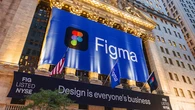Former president Donald Trump says he wants to “save TikTok.” Just four years ago, he wanted to ban it.
On Truth Social, Trump has framed himself as TikTok’s shining knight, out to save the app from the Democrats who’d like to take it down. That’s a far cry from his stance four years ago, when he signed an executive order to ban TikTok within the U.S. citing national security concerns. So, what happened?
Trump, the attempted TikTok killer
During his presidency, Trump was a staunch advocate for a TikTok ban. Citing threats to national security from Chinese-owned apps, Trump signed an executive order in August of 2020 mandating the sale or shutdown of Bytedance-owned TikTok, alongside Tencent-owned WeChat, within 45 days of his signature.
Trump wouldn’t even allow a TikTok sale to an American company, preferring instead to flat-out ban the app. Days before the executive order, ByteDance was in talks with Microsoft to divest TikTok. Speaking to reporters on Air Force One, Trump made his stance clear: “We are not an M&A [mergers and acquisitions] country,” he said.
In the following months, Trump’s TikTok ban washed through different prospective buyers and court orders. Oracle was in talks for an acquisition—while a full sale never occurred, TikTok would later store all U.S. user traffic in the Oracle Cloud. Through a series of court battles, Trump delayed his TikTok ban multiple times, up until he left office leaving Biden to revoke the ban.
Trump the TikTok cheerleader
Under Joe Biden’s presidency, Congress passed the Protecting Americans from Foreign Adversary Controlled Applications Act (PAFACA). PAFACA had many of the same principles as Trump’s executive order: ByteDance had to sell TikTok by 2025, or the app would face a countrywide shutdown. Meanwhile, Trump was eyeing a new voter demographic: Gen Z men, many of whom are avid users of the app.
As PAFACA moved its way into law, Trump changed his tune entirely. Appearing on CNBC’s Squawk Box in March, Trump argued that a TikTok ban would give Facebook too much power. And, in a September Truth Social video, he told voters: “For all of those who want to save TikTok in America, vote for Trump. The other side’s closing it up, but I’m now a big star on TikTok.”
Trump has yet to publicly address this about-face; looking at his current policy positions, it’s as if the monthslong anti-TikTok crusade evaporated. Getting fellow Republicans to fall in line, however, has proven to be a mixed bag: House Republicans passed PAFACA against his skepticism, while conservative PAC Club for Growth has been strong-arming Republicans into pro-TikTok sentiments.
What’s TikTok’s status?
Under PAFACA, ByteDance needs to divest TikTok by January 19, 2025, in order for the app to continue its American operations. Some key players have stepped up to consider an acquisition, including billionaire Frank McCourt and former treasury secretary Steve Mnuchin. But ByteDance, for its part, isn’t biting: They’ve challenged PAFACA in court, with the U.S. Court of Appeals for the D.C. Circuit planning to hear arguments September 16.
As far as popular sentiment goes, a national TikTok ban remains unpopular. According to Pew Research Center, only 32% of American adults support the ban, a sweeping backslide from the 50% support back in March 2023. After four years of delays and challenges, many are feeling disillusioned that a ban could even happen: 50% of adults believe a ban is unlikely, compared to only 31% who believe it’s likely.









No comments